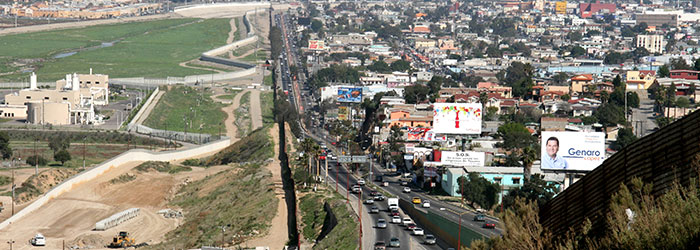March 8-9, 2018, Anderson University Center
Free and open to PLU and surrounding communities; registration strongly recommended
The greatest glory in living lies not in never failing, but in rising every time we fail.
– Nelson Rolihlahla Mandela
PRÉCIS
8th WANG CENTER SYMPOSIUM Migration: Towards an Interdisciplinary and Cross-Cultural Understanding of Human Mobility
Making use of a defining trait, mobility, humans and non-humans alike embark on both short and long, often arduous and treacherous treks, to search for water and food, flee from danger, or find more hospitable environments to achieve their goals. More recently, migration patterns have been disrupted and accelerated as all species confront the very real consequences of climate change, which include an increase in global health crises and the destruction of fragile ecosystems and the life that dwells in them. “While movement is not a required element of trafficking, it is the case that those fleeing are especially vulnerable to trafficking—whether at home, in transit, or upon reaching their destination.” (https://www.state.gov/j/tip/rls/tiprpt/2015/243375.htm).

Unprecedented migrant and refugee crises throughout the globe, moreover, including our own southern border, are rekindling debates about cultural autonomy, national identity, boundaries, and security. Similarly, the movement of non-human life forms, including diseases, raises questions regarding global commons, international cooperation, and conservation. These debates and questions, in turn, are reshaping nations’ political futures through the dismantling of long-sought-after civil and human rights, of geopolitical unions like the EU, and of trade pacts such as the Trans-Pacific Partnership. These same debates threaten to dissolve unprecedented climate accords such as the Paris Agreement, the global action plan that seeks to limit global warming to well below 2°C by the end of this century.
The 2018 Wang Center Symposium gathers scholars, writers, artists, and practitioners to explore the causes and effects, the patterns and disruptions, and the past, present and future of migration, an issue that one expert argues, will define the twenty-first century . Seeking a nuanced and compassionate understanding of this pressing issue, the two-day conference will attempt to answer some of the following questions: Why do humans move? What methods exist to document the history and patterns of migration? In what ways do community, regional, state and global policies and powers foster or hinder migration and why? What evidence is there that climate change is impacting migration? Are there patterns in migrant resettlement? If so, what do they look like and what can we learn from them? How has increased awareness of mobility shaped academic disciplines and the arts? What examples exist—historical and contemporary—of effective, creative, and humane responses to human and non-human movement, in general, and to refugee crisis, human and non-human trafficking, in particular?
Speakers and Panels
See a detailed panels list and bios of the 8th Biennial Wang Center Symposium speakers.
Reading/Viewing Challenge
The PLU community is invited to participate in a Migration Reading Group Challenge.
Sessions & Schedules
Check back soon for the list of presenters and complete schedule.
Reading Challenge
The PLU community is invited to participate in a Migration Reading Group Challenge.
Wang Center for Global and Community Engaged Education
Made possible by a generous gift from Drs. Grace and Peter Wang, the Center is an academic support unit dedicated to providing faculty, students and staff with the resources necessary to advance PLU’s distinction and vision for global education of “educating for a just, healthy, sustainable and peaceful world at home and abroad” through faculty development and grant opportunities, delivery of study away programs, on-campus programming on pressing world issues and a commitment to best practices when engaging with educational partners worldwide.
Thank You to our Sponsors
Benson Family Foundation
The Forty-fourth Annual
Walter C. Schnackenberg
Memorial Lecture


